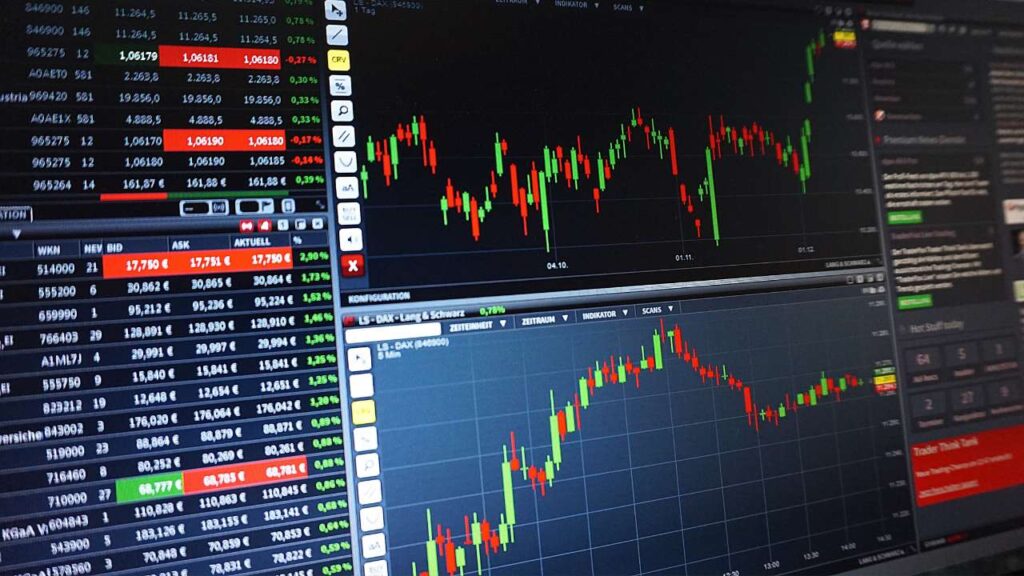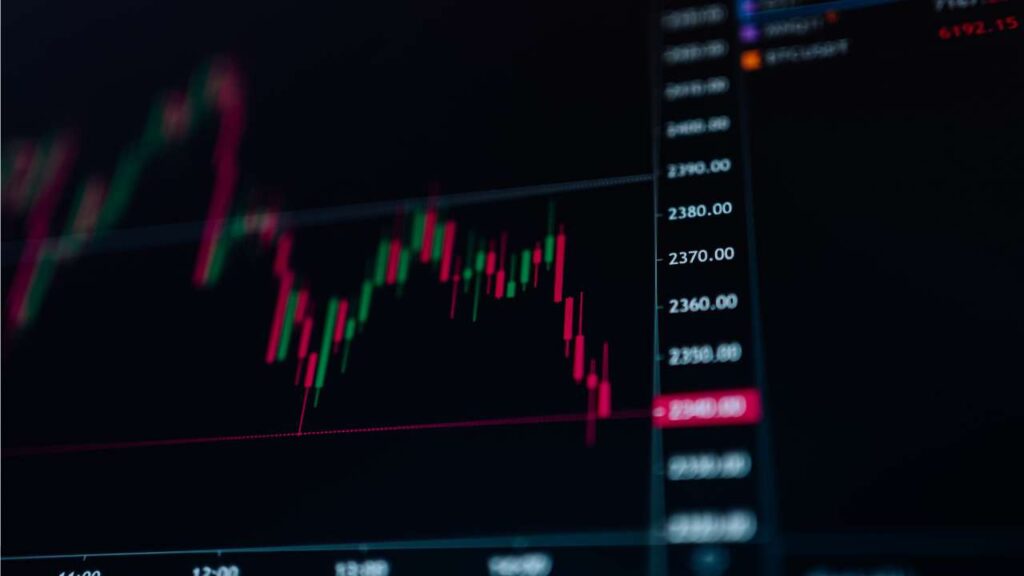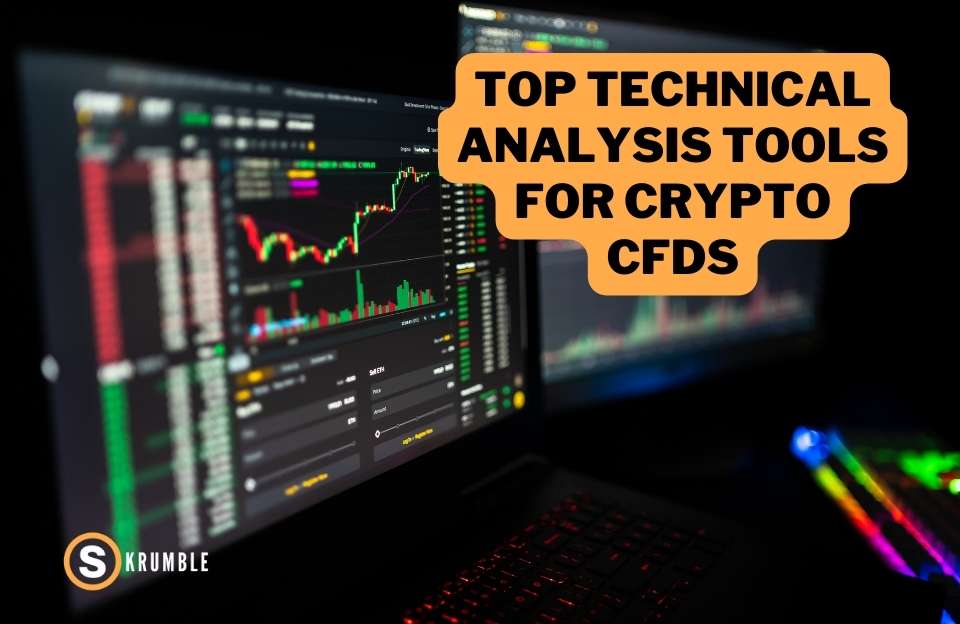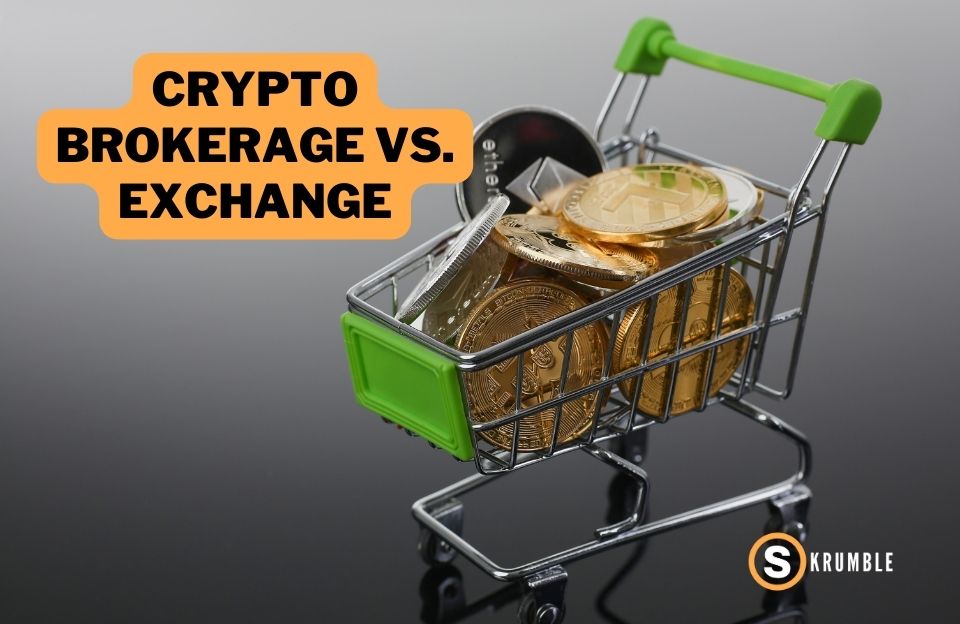- Home
- /
- Guides
- /
- Intermediate
- /
- Which Licenses Should a...
Which Licenses Should a Trustworthy Broker Have?
Swen Keller

For trading Forex, you need a web broker you can trust. To be successful in the foreign currency markets, you must trade Forex with a reliable Forex broker. If you trade contracts for difference (CFDs) or invest in foreign exchange (Forex), you may have special requirements when it comes to the platform, trading tools, or research you need. You can find the best broker by learning more about the type of investments you want to make.
There are thousands of regular brokers or Forex trading platforms, that you will find on the foreign exchange market. Among them, Forex brokers form a special group of people who participate in the interbank market. They act as go-betweens for private traders and buyers and the market on these trading platforms. Online brokers are approved by regulatory bodies that make sure traders are safe, legal, and protected financially. In the next section, we’ll talk about the main types of licenses used in the forex market and, as well as a list of the most common regulators.
Different Categories of Forex Licenses and Top Regulatory Bodies

Tier 1 – Oversight by the Commodity Futures Trading Commission (CFTC) and compliance with the National Futures Association (NFA).
Tier 2 – Recognition by esteemed authorities such as the UK Financial Conduct Authority (FCA) and the Australian Securities and Investments Commission (ASIC).
Tier 3 – Authorization from regulatory bodies like the Cyprus Securities and Exchange Commission (CySEC) and the Malta Financial Services Authority.
Tier 4 – Compliance with the Financial Services Commission (FSC) in BVO and recognition by the Belize International Financial Services Commission.
Tier 5 and 6 – Inclusion under various offshore regulatory commissions falling beyond the aforementioned tiers.
Why are These Licenses Important?
Leveraging our first-hand insights, we discovered that there is no one set of rules for the Foreign Exchange Market. That is, there isn’t a single foreign group or authority that oversees everything that goes on in the Forex market. This kind of regulator simply doesn’t exist. Even so, the actions of individual market participants and dealers are closely watched. A broker’s algorithms are, for example, always being tweaked and improved, and they give them a lot of power over market participants without them having to do anything. In the market, there are local regulators for each country and global regulators for players who do business in more than one region.
After our direct and extensive analysis, we have noted that today, we discovered that the majority of honest brokers put a lot of effort into obtaining a license as evidence to potential clients of their dependability. Certain licenses are granted by several financial authorities. These authorities check that the broker’s business is legal, conduct audits, and then regulate the broker’s actions after awarding them a license. Forex brokers need a license to show that they are operating legally and that the transactions are conducted within the interbank market.
How is the Forex Market Controlled, and Who is in Charge of it?

Forex market regulators, whether local (pertaining to competent public authorities) or international (independent financial commissions), exercise control over a broker’s activities. These regulators perform a triad of functions concerning the best Forex brokers:
Regulation of the Forex Market
Verify the broker’s compliance with licensing requirements
Monitoring compliance during trading and other transactions
Revoking the broker’s license in severe violation scenarios
The primary objective of a regulatory body issuing a license is to prevent situations where the broker cannot fulfill his or her obligations to traders. Regulators offer legal protection to traders and investors, investigating their complaints and conducting broker inspections. Additionally, they audit broker activities to ensure alignment with licensing requirements.
When a regulator issues a license within a specific territory or country (i.e., a local regulator), its jurisdiction extends solely to traders and investors who are residents of that jurisdiction. For instance, if a broker holds an FCA (UK) license, the regulator oversees the broker’s operations only for UK citizens. Traders and investors from other countries are not covered by this regulator.
Another crucial aspect to consider is that in certain countries, brokers are not mandated to acquire a license. Consequently, a broker might be registered as a legal entity providing financial services and operate globally through the Internet. However, this lack of licensing does not inherently denote unreliability or fraudulence. Nonetheless, traders and investors lack guarantees while engaging with such a broker, as a licensed broker is always preferable.
Here are the advantages of working with a licensed broker:
Guarantee of Fund Reimbursement: In case of the broker’s bankruptcy, the trader/investor is assured of fund retrieval. To ensure this, the broker must establish a compensation fund regulated by the authorities.
Regulatory Involvement in Dispute Resolution: In legal or financial disputes in the market, the regulator acts as an impartial arbitrator, striving to resolve conflicts between traders/investors and brokers.
Broker Audits: Regulators consistently audit broker activities, immediately revoking licenses and notifying competent authorities in case of significant errors or fraudulent schemes.
Ensure Transparency: The issuing regulator ensures broker transparency through financial and tax audits.
Through our extensive hands-on analysis, we found that trustworthy and best Forex brokers in the Forex market should ideally possess licenses from reputable regulatory bodies that ensure adherence to stringent financial regulations and investor protection guidelines. These licenses act as a testament to the broker’s commitment to maintaining transparency, regulatory compliance, and financial stability. Here are the recommended licenses a trustworthy broker should have:
1. Tier-1 Regulator License, such as the Commodity Futures Trading Commission (CFTC) and the National Futures Association (NFA) in the United States. These regulatory bodies are known for their tough requirements and comprehensive oversight.
2. UK Financial Conduct Authority (FCA) or Australian Securities and Investments Commission (ASIC) License: Brokers licensed by these authorities exhibit adherence to rigorous standards and thorough monitoring, ensuring a high level of reliability.
3. Cyprus Securities and Exchange Commission (CySEC) or Malta Financial Services Authority License: These regulators have serious requirements for licensing but often employ relatively simpler monitoring procedures. Brokers licensed by these bodies demonstrate a commitment to compliance.
4. Financial Services Commission (FSC) in BVO or Belize International Financial Services Commission License: While these entities have simpler registration processes and less detailed audits, possessing such a license may signify a certain level of credibility.
Drawing from our hands-on evaluations, we can state that it’s important to note that the regulatory landscape may vary, and some brokers might operate under offshore commissions beyond these levels. While they are monitored by regulatory bodies, they might not necessarily require licenses, which can impact the level of assurance for traders and investors.
Basically, a trustworthy and best Forex broker should hold licenses from respected regulatory bodies that indicate compliance with stringent regulations and a commitment to client protection. Here’s a detailed breakdown of the licensing requirements for forex brokers in various regions, focusing on the United States, the European Union, and Australia:
United States

The regulatory environment for brokers in the United States involves stringent oversight by two major entities: the Commodity Futures Trading Commission (CFTC) and the National Futures Association (NFA). Here’s a detailed breakdown of the licensing requirements and regulatory functions of these institutions, based on publicly available information.
Commodity Futures Trading Commission (CFTC)
The CFTC is an independent federal agency responsible for regulating commodity futures and options markets in the United States.
It ensures market integrity and protects market participants against fraud, manipulation, and abusive trading practices.
The agency’s oversight extends to forex brokers operating in the U.S., requiring them to register and comply with strict regulatory standards.
National Futures Association (NFA)
The NFA operates as a self-regulatory organization (SRO) overseeing the activities of its members, including Forex brokers.
It works in conjunction with the CFTC to regulate the futures industry and safeguard investors’ interests.
Licensing Requirements for Forex Brokers
To obtain licensing from the CFTC and NFA, Forex brokers must meet specific criteria. This includes maintaining a minimum net capital requirement, which typically amounts to $20 million if the broker is part of a designated self-regulatory organization.
Compliance entails accurate bookkeeping practices, undergoing routine audits, and adhering to comprehensive inspections by these regulatory bodies.
Brokers are obligated to disclose fees transparently, execute trades promptly, and maintain robust risk management protocols.
European Union

The regulatory framework for forex brokers within the European Union (EU) revolves around the Markets in Financial Instruments Directive (MiFID), which serves as a foundational regulatory guideline governing financial markets.
Markets in Financial Instruments Directive (MiFID): MiFID is a comprehensive set of regulations aimed at standardizing financial markets across the European Economic Area (EEA). Its primary objectives are to enhance investor protection, ensure market integrity, and promote transparency within financial markets.
Licensing and Regulatory Authorities: Forex brokers operating within the EU are mandated to comply with MiFID’s provisions and acquire licensing from the relevant national regulatory authorities in their respective countries. These regulatory bodies oversee the financial industry and enforce MiFID’s guidelines. Notable regulatory authorities include:
1. Financial Conduct Authority (FCA) in the UK: The FCA is one of the most respected regulatory bodies globally, ensuring the integrity and stability of the financial markets in the UK. It regulates and supervises financial firms, including forex brokers, ensuring compliance with MiFID and local regulations.
2. Autorité des Marchés Financiers (AMF) in France: AMF is the regulatory body overseeing the financial markets in France. It is responsible for licensing and supervising financial entities, ensuring compliance with MiFID’s standards to protect investors and maintain market fairness.
Key Aspects of Compliance: Forex brokers seeking authorization from these regulatory authorities are required to comply with various stipulations outlined in MiFID. These include:
· Investor Protection: Ensuring transparency and adequate disclosure of risks associated with trading forex to protect investors.
· Market Integrity: Upholding the fairness and integrity of financial markets by preventing market abuse, manipulation, and unethical practices.
· Transparency: Requiring clear and comprehensive information for clients regarding trading terms, fees, and risks associated with Forex trading.
Compliance with MiFID and obtaining licensing from the relevant national regulatory authority within the EU are crucial for forex brokers to operate legally and ensure adherence to strict standards that prioritize investor protection and market transparency.
Australia

The regulatory framework for Forex brokers in Australia is overseen by the Australian Securities and Investments Commission (ASIC), which mandates specific standards to ensure the integrity and stability of financial markets. Below is a detailed breakdown of ASIC’s regulatory responsibilities and licensing requirements:
Australian Securities and Investments Commission (ASIC)
ASIC is Australia’s regulatory body responsible for overseeing financial services, including the licensing and regulation of forex brokers operating in the country.
The commission focuses on maintaining market integrity, consumer protection, and fair trading practices within Australia’s financial sector.
Licensing Requirements for Forex Brokers
Forex brokers in Australia are required to obtain licensing from ASIC. To secure this license, brokers must meet the minimum standards set by ASIC, focusing on financial stability, risk management, and client protection.
Compliance with ASIC’s regulatory framework is mandatory, encompassing various aspects such as guidelines for advertising practices, transparent disclosure of information to clients, and effective mechanisms for dispute resolution.
Key Regulatory Standards Emphasized by ASIC
Financial Stability: Brokers must demonstrate financial stability, maintaining adequate capital reserves to ensure operational continuity and meet financial obligations to clients.
Risk Management: Implementing robust risk management practices is crucial to protect clients’ investments and mitigate market risks effectively.
Client Protection: ASIC mandates strict measures for safeguarding clients’ interests, including transparent communication of risks, fair treatment, and accessible dispute resolution mechanisms.
Advertising and Disclosure: Forex brokers are obligated to adhere to ASIC’s guidelines on truthful advertising, ensuring clear and accurate disclosure of information to clients regarding services, fees, and associated risks.
Additional Notable Licenses
Dubai Financial Services Authority (DFSA): A regulator growing in popularity in the Middle East, DFSA, is considered a reliable trading platform for regional and international Forex trading. DFSA-licensed brokers are known for their innovative approach and focus on emerging markets.
International Financial Services Commission (IFSC) – Belize: A popular offshore regulator known for its streamlined licensing process and flexible regulations, IFSC-licensed brokers offer attractive trading conditions and access to exotic currencies.

Conclusion
A trustworthy broker should hold relevant licenses and certifications to operate legally and ethically. The specific licenses required may vary depending on the country, state, or jurisdiction, as financial regulations differ worldwide. However, the main point of the discussion is how important regulatory licenses are for making sure that Forex traders and investors can trade Forex in a safe and honest atmosphere.
The CFTC, NFA, FCA, ASIC, and CySEC keep an eye on things to make sure the market operates fairly, investors are safe, and strict financial rules are being followed. If you want to find a trustworthy broker, look for licenses from Tier-1 officials. These show that the broker is committed to high standards and client safety.
Traders should look into more than just licenses, though. They should consider several factors including the quality of the service delivered by the trading platform, the instruments that are offered, the fees, and the overall customer service to make sure that everything fits their needs. Even though licenses are a sign of trustworthiness, it’s important to do more than just check that a broker follows the rules to find one that fits your needs and goals while also putting client safety and financial stability first.
FAQ
Most frequent questions and answers
Ensuring your broker’s legitimacy involves several steps. Check for licenses from Tier-1 regulators like the Financial Conduct Authority (FCA), Australian Securities and Investments Commission (ASIC), or Cyprus Securities and Exchange Commission (CySEC). Additionally, read online reviews and testimonials. Choose a broker with a long, proven track record and look for clear displays of licenses and regulations on their website.
A reliable broker is one with valid licenses from top regulators, a good reputation among traders, years of experience in the market, and transparency about fees, regulations, and contact information.
Applying the EEAT principles (Expertise, Experience, Authoritativeness, Transparency), compare features like the trading platform, instruments offered, fees, and customer support. Do not solely rely on licenses; conduct thorough research and trust your instincts.
Look for factors mentioned above, and prioritize those with multiple positive indicators. Start with smaller trades and gradually increase exposure as trust builds. Pay attention to their communication, responsiveness, and adherence to regulations.
Check their website for displayed licenses and regulator information. Verify the licenses on the regulator’s website. If unsure, contact the regulator directly for confirmation.
The broker’s website should display licenses prominently. Regulatory body websites often have broker license databases. Independent review websites can also offer insights and red flags.
No, individual traders typically do not need licenses. But your chosen broker MUST be licensed to operate legally.
Reputable brokers will be regulated, but regulations vary by jurisdiction. Look for licenses from recognized authorities in the broker’s location.
While not mandatory, certifications like the CFT demonstrate your knowledge and commitment. Research different certifications and choose one aligned with your goals.
Yes, for individual traders, it is legal. Choose a broker registered with the NFA.
It depends on your individual needs and trading style. Use the EEAT criteria and conduct research to find the best fit.
Prioritize Tier-1 licenses and research thoroughly based on your needs. No single “safest” broker exists; it’s about finding the right fit for you.
Skrumble.com provides all its content for informational purposes only, and this should not be taken as financial advice to buy, trade, or sell any investment instruments or products, including but not limited to cryptocurrencies, or use any specific exchange. Please do not use this website as investment advice, financial advice, or legal advice, and each individual’s needs may vary from that of the author. Investing in financial instruments, including cryptocurrencies, carries a high risk and is not suitable for all investors. It is possible to lose the entire initial investment, so do not invest what you cannot afford to lose. We strongly advise conducting your own research before making any investment decisions. This post includes affiliate links with our partners who may compensate us.
To view our privacy policy read here.






